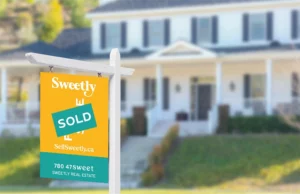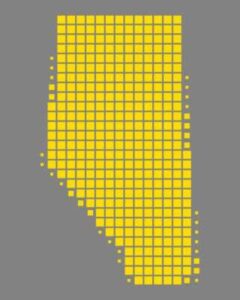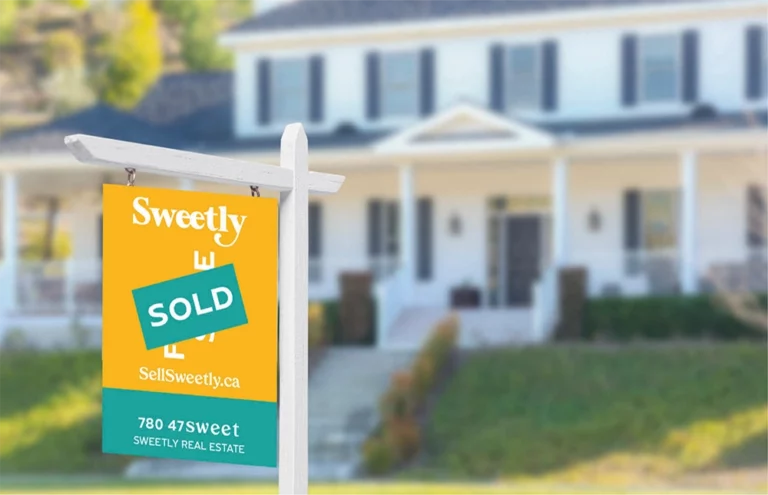Having property insurance is necessary -in that- you will not suffer total property loss in the event of theft, vandalism, fires, or an act of nature. But the cost of coverage, mortgage, and other financial commitments will add up – costing you thousands of dollars annually.
To avoid undue hardship, you need a targeted approach that takes into account property insurance discounts. You should also know when to file and the factors that impact property insurance premiums.
Below is how to reduce property insurance premiums.
Quick take:
How to lower property insurance premiums in Canada
- Paying a higher deductible will result in lower premiums.
- You may get property insurance discounts if you purchase multiple coverages from the same insurer or if you remain loyal to the insurer. However, we recommend getting all discounts you qualify for (consult with your insurer or check your policy).
- Canadian insurance laws do not require building/ property insurance, but your mortgage lender may require it.
- Property insurance discounts depend on your claim’s history, the location of the property, and the risks.
- Having an attractive nuisance on your property may increase insurance premiums.
How to reduce homeowner/property insurance premiums in Canada
When purchasing property insurance, you must know your needs. For instance, if you are in an area that is not prone to natural disasters, you do not need additional coverage such as flood protection. To learn more about how to get insurance discounts first, we need to understand how insurance companies set their rates.
How do insurers set rates in Canada?

Your monthly insurance premiums are based on four factors:
Surcharges
These are additional charges related to risk. For example, if you have a bad credit history, your insurer may include surcharges in your policy. For property owners, you may have to pay additional fees or penalties if:
- You have an “attractive nuisance” on your property, such as a swimming pool, play area, or items that may attract attention.
- You are a “risky client”/ have filed multiple claims.
- If the property owner has a history of prior claims.
The Building or Property
How old the property is and the construction and the location of the property will impact your premiums. The type of building, age, risk, and worth are all factors. For example, an older building may be higher to insure than a more expensive new building due to the additional risk involved with an older home.
Find the value of any home in Canada.
If your insurance is comprehensive, then your insurer will also consider the value of all possessions inside the home.
Insurance Discounts
Your insurer may offer you discounts if you remain loyal or purchase multiple coverages -say property and vehicle insurance. Check your policy or consult with your insurer.
Property insurance discounts
Your insurer may offer you the following discounts
- Loyalty Discounts – If you have been a client for many years, it might be worthwhile to switch your coverage or ask if they have a loyalty discount.
- Roof/Property Upgrade – Having a poorly maintained roof increases your risk of damage.
- Claim Free Client- You may be able to reduce your home insurance if you can verify that you have never made a claim before.
- Mortgage Free Discount – Homeowners who do not have a mortgage or HELOC on their home can have a lower home insurance premium.
- Property Construction – You may get discounts if your property features superior construction or fire resistance.
- Multiple Coverage Discounts – If you bundle home and auto insurance, you can save money.
- Removing Fireplaces – Removing fireplaces or signing a waiver stating you will not use them can drastically lower your insurance.
- Cooperative Housing Discount – If you live in a cooperative, you may qualify for lower insurance in some regions due to the perceived safety of a community.
- New Home – Newer homes can have a lower cost of insurance.
- Mature Client– If you’re over the age of 55, insurers often will move you to a lower-cost plan because you are deemed lower risk.
- Home Security Discount – Having a full suite of protective systems (burglar and fire) will save you on your home insurance costs.
- Water Shut Off – Having an automatic water shutoff system installed in your home can lower the risk of water damage and reduce your home insurance cost.
- Ensure the Home is Inhabited – Vacant buildings have higher insurance premiums, and your insurer may not cover you if they can prove that damage was caused by not noticing an issue. Examples of this would be flood damage over the course of days or burst pipes during a cold snap while the home was vacant.
Type of Coverage
Additional Riders
Basic coverage may not be enough to cover you in all instances of damage in or around your home so there are two additional riders that you should consider that will cost more, but improve your home insurance coverage drastically.
Additional Coverage for Damage to the Interior or Exterior of Your House
While your home insurance company will likely protect you if your home is damaged due to fire, lightning, vandalism, or other disasters, you may need separate coverage in the event of damage from floods, earthquakes, or poor home maintenance. Additionally, your home insurance may not cover outbuildings like detached sheds or garages.
Personal Liability
Liability protects you in the event that you get sued. It can cover a dangerous portion of your property or even in the event that your dog bites someone else. If you are looking for comprehensive coverage, this is a must-have on your policy.
What causes property insurance premiums to go up over time?

On average, property owners in Canada spend at least $900 per year on property insurance. The amount averages $1000 in Alberta and Ontario. Typically this works out to around $80 per month. The reasons your property insurance could go up over time include:
- Your Claims History – Your insurer may consider you a high-risk client if you have had more than one claim in the last five years.
- Marital Status Change – If you are single, your insurer may perceive you as less responsible, resulting in higher property insurance rates.
- The age and condition of the home, location, and the cost of repair, will impact your premiums. For example, if your home or property is in a dangerous part of the city, the premiums will be higher.
- Paying a lower deductible may result in higher premiums. We recommend paying a higher deductible for a lower lifetime fee.
- Adding an Attractive Nuisance – Swimming pools, treehouses, and other attractive features on your property may impact your premiums.
- Removing Safety Systems. Is there a fire alarm on your property? How far from a fire station is the property? Is there a hydrant near the property? These are some questions your property insurer may ask.
- Your Credit Rating Decreases – If you have bad credit and your insurance company does a credit check, your premiums could be higher.
How to reduce property insurance in Canada
Depending on your insurer, you may customize your policy to fit specific needs. For example, if you are not in a disaster-prone area, it is less likely you will need “act of God” protection.
What are your insurance needs?
All property owners need two basic types of protection. (1) property coverage (2) liability coverage.
Personal liability coverage
Under provincial and federal laws, property owners in Canada have a legal obligation to ensure that their property is reasonably safe for visitors. Consequently, if anyone suffers property damage or injury while on your property, you could be liable to pay.
Property liability coverage protects you from lawsuits in that you do not have to pay legal fees and damages out of pocket. In addition, you may customize your policy to include pets.
Does your policy cover interiors and exteriors?
Note that your property or homeowner insurance coverage may not provide coverage for properties that are not attached to your home or property. That means your policy may not extend to freestanding garages, sheds, or other freestanding structures.
To keep insurance premium costs low, you can decide what needs coverage and what does not. We recommend insuring what is necessary.
How to get affordable property insurance
When picking an insurer for your property, the factors you should consider are:
The company’s reputation.
Are policyholders complaining?
Does the company have a history of fraudulent activities?
Are their rates reasonable?
You should also consider the company’s financial strengths and the products they sell.
Why does the insurer offer lower rates?
The price of coverage should not necessarily be your main driving point.
Why?
An insurance company that offers unusually low rates could be offering a substantially worse product. Consequently, get quotes from multiple insurers and compare the rates and policies. You may do your research online, in person, or you may get recommendations from other property owners in your area.
What to look for in insurance providers
- Is the company registered?
- Are their rates within your means?
Tip: If a company is offering rates that are too good to be true and does not have a large google pool of google reviews, you can find out if they have a history of fraud by searching for the company name in Google alongside the term “scam”.
In short, the easiest ways to lower your insurance premiums are:
- Pay a higher deductible.
- Compare insurance rates before you buy.
- Remove high-risk elements from your property.
- Increase the safety of your property.
Strategies to reduce home insurance premiums?
Property insurers recommend the following strategy.
1. Know when to file a property insurance claim
As mentioned, your insurance claim history will impact your premiums.
Consequently, the more times you file a claim, the higher your insurance rates.
Therefore, it is vital to ensure that the claim is valid before you file a claim. Start by checking the terms and conditions of your policy.
Next, ask the question, is the claim worth the deductible or premium increase?
Note – Your property insurance premiums may increase even if you file a small claim.
Consequently, if the damage is minor or if you can fix the damage without putting undue hardship on yourself or your business, you should consider fixing the damage out of pocket to avoid higher premiums.
2. Pay a higher deductible when buying insurance
If you pay a higher deductible, your premiums will be lower. What is a deductible?
A deductible is the amount of money you pay to an insurance company before the company pays a claim.
3. Buy insurance from the same company and upgrade your property (Bundle, Bundle, Bundle!)
Your insurer may give you a discount on premiums if you have multiple policies such as home and car insurance. It is also easier to keep track of payments.
We recommend consulting with your insurer before purchasing multiple coverages. Find out what benefits the company offers and compare it to the competition.
How to earn loyalty discounts in Canada on Property Insurance
Your insurer may offer loyalty discounts and claims-free discounts. You earn said discounts based on how long you remain loyal to the insurer and your claims history.
Earning loyalty discounts and claims-free discounts means that you will pay lower premiums.
We recommend consulting with your insurer to find out what perks are available to you.
Related:
Property Insurance Guide: What type of property insurance coverage do you need and why?












